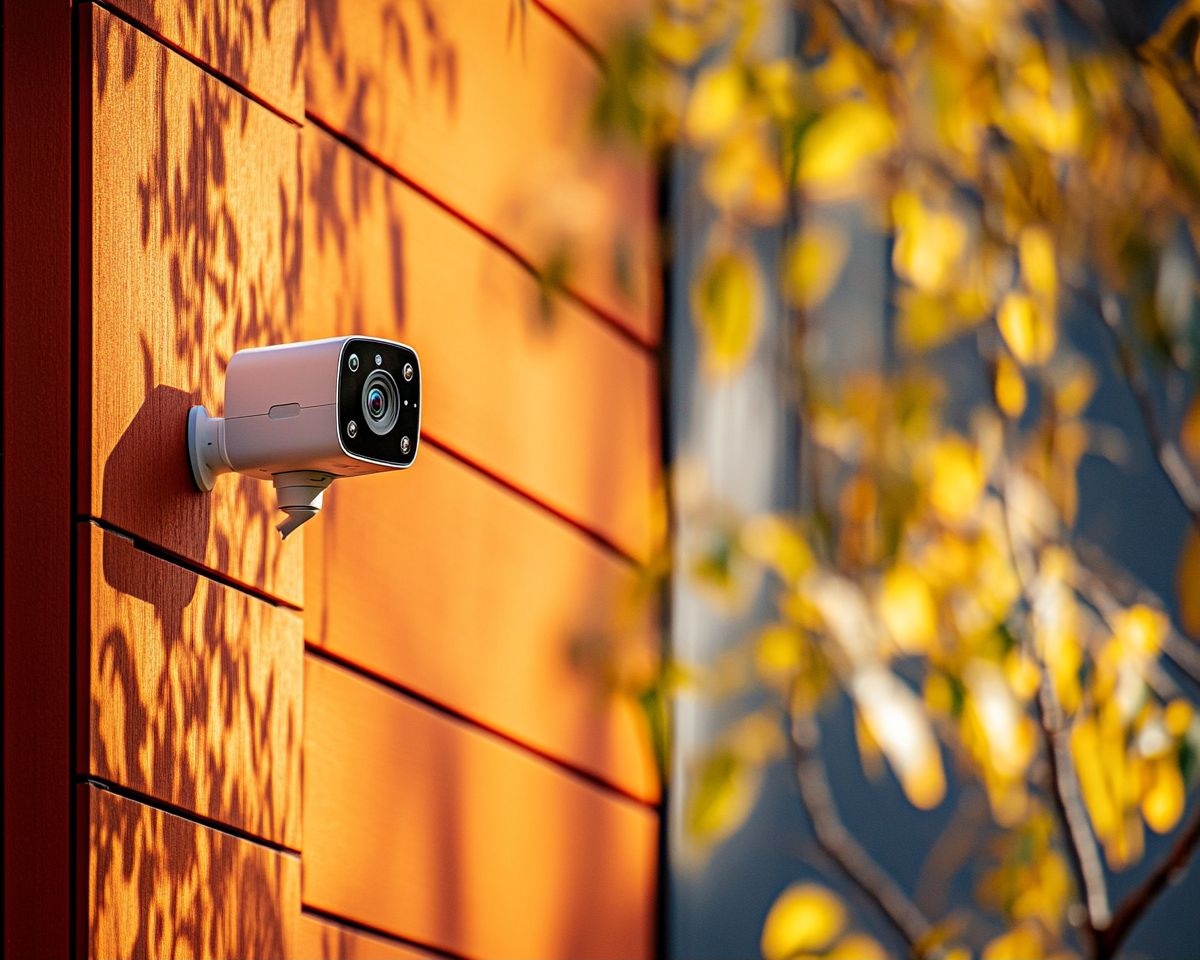Understanding Security Services: Protection Solutions for Homes and Businesses
In today's increasingly unpredictable world, security services have become essential for both residential and commercial properties. These professional protection solutions offer more than just physical security—they provide peace of mind knowing that trained professionals are monitoring and safeguarding what matters most. From basic alarm systems to comprehensive security programs with armed personnel, the security service industry has evolved to address diverse threats while adapting to technological advancements and changing customer needs. Whether for a family home or a corporate headquarters, tailored security services help mitigate risks and create safer environments.

What Makes Security Services Reliable for Peace of Mind?
Reliability in security services stems from several critical factors that work together to create a trustworthy protection system. First and foremost is response time—how quickly security personnel or monitoring systems react to potential threats or breaches. Professional security providers maintain clear protocols and redundant communication systems to ensure consistent response regardless of circumstances.
Training and certification represent another cornerstone of reliability. Reputable security companies invest extensively in personnel development, including situation management, threat assessment, and de-escalation techniques. This training ensures security officers can handle various scenarios professionally and effectively. Additionally, reliable security services undergo regular quality assessments, implement strict hiring practices with thorough background checks, and maintain proper licensing and insurance coverage that meets or exceeds industry standards.
Technology integration further enhances reliability through systems that operate continuously with minimal downtime. Modern security services incorporate backup power supplies, redundant monitoring capabilities, and regular maintenance schedules to prevent service interruptions when protection matters most.
How Do Trusted Protection Solutions Benefit Homes and Businesses?
Trusted protection solutions deliver distinct advantages for both residential and commercial clients. For homeowners, these services create safer living environments where families can feel secure whether at home or away. Modern residential security solutions often include remote monitoring capabilities, allowing homeowners to check on their property via smartphone apps, receive real-time alerts about unusual activity, and even control security features remotely.
For businesses, professional security services provide multiple layers of protection that safeguard assets, employees, and customers. Beyond preventing theft and vandalism, these solutions help companies maintain compliance with insurance requirements and industry regulations. Additionally, visible security measures often deter potential criminal activity before it occurs, creating safer work environments and potentially reducing insurance premiums.
Both homes and businesses benefit from customized risk assessments that identify specific vulnerabilities unique to each property. These evaluations help security professionals design protection systems that address actual threats rather than implementing generic solutions that might leave critical gaps in coverage.
How Are Professional Security Services Tailored to Individual Needs?
Security requirements vary dramatically between clients, making customization essential for effective protection. Professional security providers begin with comprehensive consultations and site evaluations to understand specific concerns, vulnerabilities, and protection priorities. This initial assessment forms the foundation for developing tailored security strategies.
For residential clients, customization might include considerations like neighborhood crime statistics, family composition, property layout, and lifestyle factors. A family with young children might prioritize different security features than retired homeowners who travel frequently. Security professionals consider these distinctions when recommending appropriate protection measures.
Commercial clients require even more specialized approaches based on industry, operational hours, employee count, customer traffic patterns, and regulatory requirements. A retail location with high customer flow demands different security protocols than a data center housing sensitive information. Professional security services adapt their offerings accordingly, potentially including specialized personnel training, access control systems, and surveillance technologies designed for specific business environments.
The customization process extends to ongoing service as well, with regular reviews and adjustments to security plans as circumstances change. This adaptive approach ensures protection measures remain relevant and effective as threats evolve and client needs shift over time.
What Components Make Up Comprehensive Security Services?
Comprehensive security services combine multiple elements to create layered protection strategies. Physical security represents the most visible component, including uniformed guards, access control systems, barriers, and structural elements designed to prevent unauthorized entry. These measures create both actual and psychological deterrents against potential threats.
Surveillance and monitoring systems form another critical component, with technology ranging from traditional CCTV cameras to advanced motion sensors and artificial intelligence-powered analytics. Modern systems can distinguish between routine activity and suspicious behavior, reducing false alarms while improving threat detection.
Access control technologies have evolved significantly, now including biometric verification, smart card systems, and mobile credentials that allow precise management of who enters specific areas and when. These systems create detailed audit trails that prove valuable for both security monitoring and operational efficiency.
Emergency response planning represents an often-overlooked but essential component of comprehensive security. Professional security services develop and regularly practice protocols for various scenarios including fires, medical emergencies, natural disasters, and security breaches. This preparation ensures coordinated, effective responses during critical situations.
How Do Security Services Adapt to Changing Threats?
The security landscape constantly evolves as potential threats become more sophisticated and technology creates both new vulnerabilities and protective capabilities. Professional security services maintain effectiveness by continuously monitoring emerging threats through industry intelligence networks and security associations. This awareness helps them anticipate potential issues rather than merely reacting to them.
Ongoing personnel training ensures security professionals understand current threat patterns and countermeasures. Regular scenario-based training prepares teams for evolving challenges like social engineering attempts, cyber-physical attacks, and other sophisticated threats that combine multiple approaches.
Technological adaptation represents another critical element in modern security services. Providers regularly evaluate and integrate new protective technologies like artificial intelligence surveillance analysis, drone detection systems, and advanced access control. These tools enhance human capabilities rather than replacing them, creating more effective overall protection.
Perhaps most importantly, professional security services maintain flexibility in their approaches, avoiding rigid procedures that become predictable to potential adversaries. This adaptability allows them to modify tactics based on changing circumstances while maintaining consistent protection levels.
What Costs Can Be Expected for Professional Security Services?
Security service pricing varies significantly based on several factors including service level, geographic location, personnel requirements, technology integration, and customization needs. Understanding these variables helps customers develop realistic budget expectations when exploring security solutions.
| Service Type | Average Monthly Cost Range | Key Components | Typical Contract Length |
|---|---|---|---|
| Basic Monitoring | $30-$60 | Alarm system monitoring, emergency dispatch | 12-36 months |
| Residential Security | $100-$300 | Basic monitoring plus mobile patrol checks | 12 months |
| Commercial Security (Small Business) | $1,500-$3,000 | Part-time guards, CCTV monitoring, alarm response | 12-24 months |
| Commercial Security (Medium Business) | $4,000-$8,000 | 24/7 guard coverage, access control management | 24-36 months |
| Executive Protection | $300-$1,000 per day | Personal security officers, threat assessment | Per-project basis |
Prices, rates, or cost estimates mentioned in this article are based on the latest available information but may change over time. Independent research is advised before making financial decisions.
Additional cost factors include equipment purchases or leasing arrangements, installation fees, system maintenance, and potential premium reductions on property insurance that may partially offset security expenses. Most providers offer various payment structures including monthly service contracts, annual agreements with discounted rates, or project-based pricing for temporary security needs.
Creating a Balanced Security Strategy Within Budget Constraints
Finding the right balance between security needs and available resources requires careful prioritization. Professional security consultations help identify critical vulnerabilities that demand immediate attention versus lower-risk areas where protection can be implemented in phases. This approach allows clients to address their most significant security concerns while planning for comprehensive coverage over time.
Many security providers offer scalable solutions that can expand as budgets allow. Starting with core components like access control and basic monitoring provides fundamental protection that can later incorporate more advanced features. Additionally, combining professional security services with thoughtfully implemented self-management practices often creates cost-effective protection. For example, businesses might employ security professionals during highest-risk periods while implementing employee security procedures during regular operations.
Understanding that effective security represents an investment rather than merely an expense helps frame budget decisions appropriately. The potential costs of security breaches—including property losses, liability issues, business interruption, and reputation damage—often substantially exceed prevention expenses, making properly structured security services a sound financial decision for most homes and businesses.




